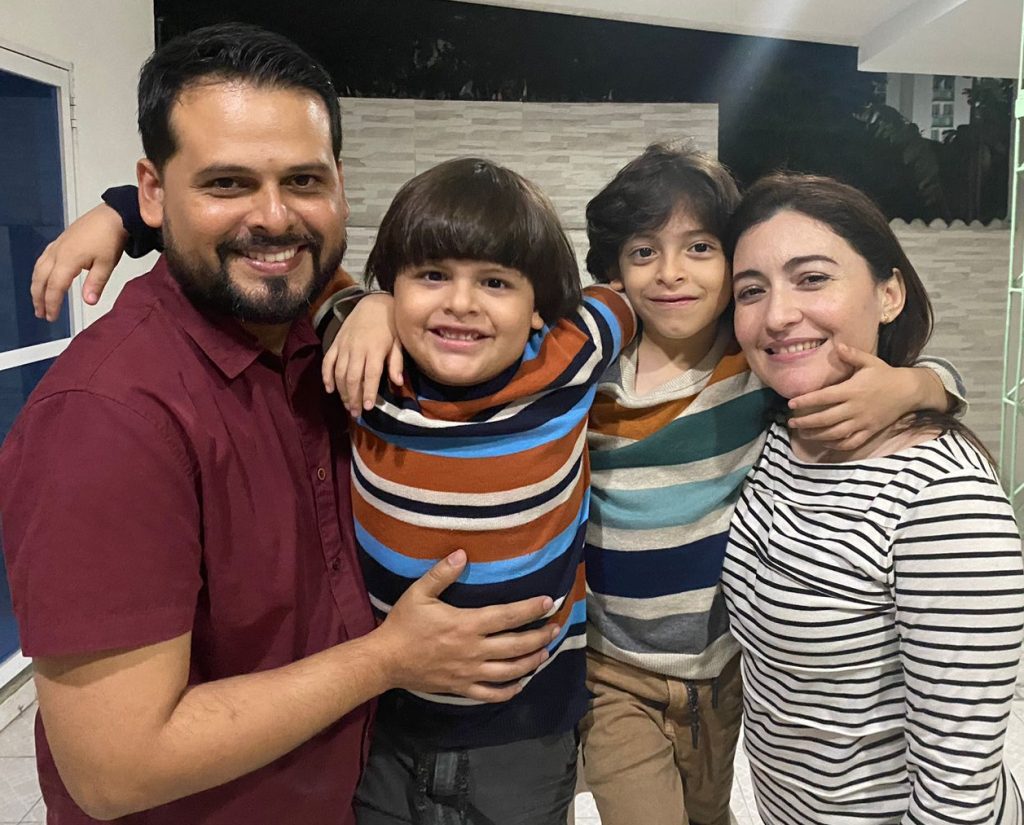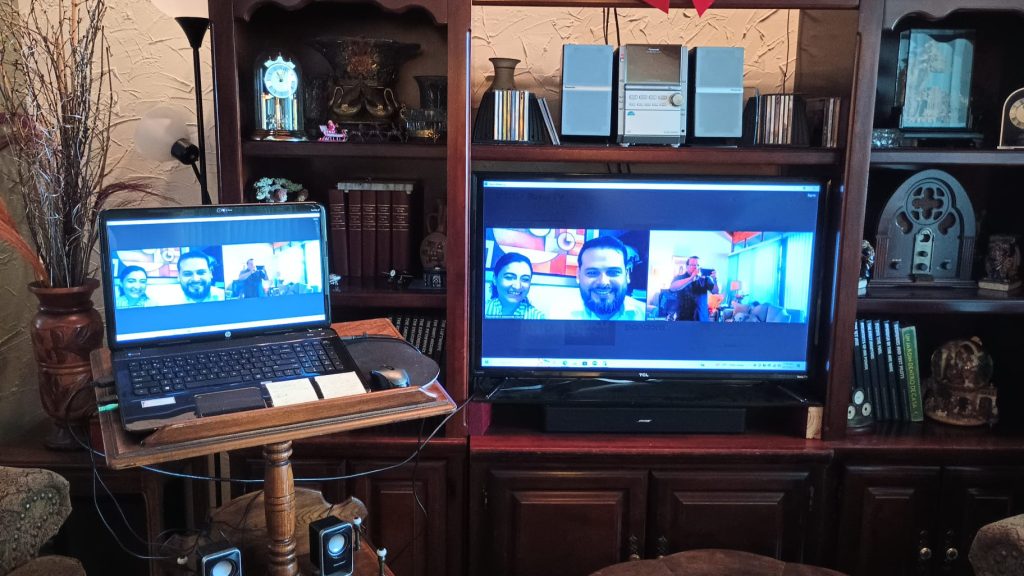by Andrés Castillo
Many of us remember when the COVID-19 pandemic forced churches online. While most have returned to in-person worship, some congregations have found online church to be the new way to worship. Such is the case for a new church in Pembroke Pines, FL, Resplandece Mennonite Church, which will have an entirely virtual pastor.
Josué Gonzalez of Encuentro de Renovación in Miami, FL dreamt of planting a church in Pembroke Pines, so much so that he offered up his house to host the new church. However, it wasn’t possible to find an Anabaptist pastor in Pembroke Pines, so Leadership Minister Marco Güete suggested starting a virtual and in-person church, using Gonzalez’s house as the base.
The pastoral candidate they identified was Manuel García, a resident of Barranquilla, Colombia and a former student in the Seminario Bíblico Anabautista Hispana (SeBAH) who was then studying at Anabaptist Mennonite Biblical Seminary (AMBS). García had been forming a church body online prior to meeting Güete through AMBS. As new migration policies in Florida were causing people to leave their homes, and it occurred to García to invite them to form a church. “It was a natural process. We just started talking, accompanying people,” García says. “These people formed the church that became Resplandece, but now there is more intentionality.”

Through Güete, García met Gonzalez, who had the space and desire to plant a new church in Pembroke Pines. “Josué [Gonzalez] video-called me and was very excited. He was showing me the house and where everything would happen,” García remembers. “So in that way, God united many intentions.”
A team was created to represent Mosaic and support the newly-born Resplandece, including Marco Güete, Noel Santiago, Josué Gonzalez, and Naún Cerrato. This board has been meeting with García monthly, and will eventually be replaced by a church leadership board. For now, García works on Zoom, WhatsApp, Facebook Live, and other social media platforms. His first official day as their pastor was December 1, 2023.
“This is a way that God is using to create new models of church,” Güete says. “The pandemic forced the change quickly and people resisted it. Now we are realizing there is another way to do church.”
Noel Santiago, Mosaic’s Leadership Minister for Missional Transformation, says that the online aspect helps Mosaic in its global ministry. “These are ongoing steps that come from a long history of face-to-face relationships.”
García describes his experience with Mosaic as a big house of refuge. “There is a sincerity and tenderness when people from Mosaic talk to you,” he says. “I already felt like a part of Mosaic.” García is currently studying with Mosaic Institute.

The first service for Resplandece took place on December 24, 2023. Their weekly activities include a Tuesday morning prayer time and Thursday family devotional time. They invite prayer for those leading the new church as well as those who will know Jesus through its ministry.
Pastor Manuel García loves spending his free time with his sons Esteban (8) and Adrian (6), and his wife Viviana. He also enjoys fishing with his father.

Andrés Castillo
Andrés Castillo is the Intercultural Communication Associate for the Conference. Andrés lives in Philadelphia, PA, and currently attends Methacton Mennonite Church. He loves trying new food, learning languages, playing music, and exploring new places.












 Listening for God’s calling. Serving their home communities. Learning from new communities. Cultivating pastoral skills. These are some of the hopes that six interns bring to their time of service and formation with Franconia Conference this summer. They come as part of the
Listening for God’s calling. Serving their home communities. Learning from new communities. Cultivating pastoral skills. These are some of the hopes that six interns bring to their time of service and formation with Franconia Conference this summer. They come as part of the 


